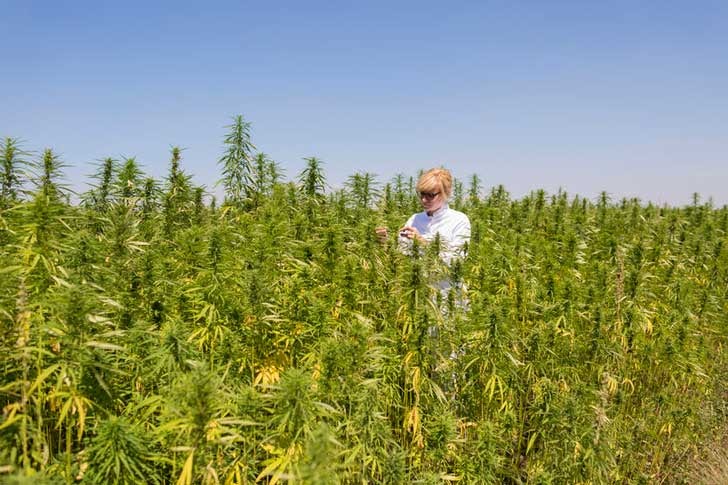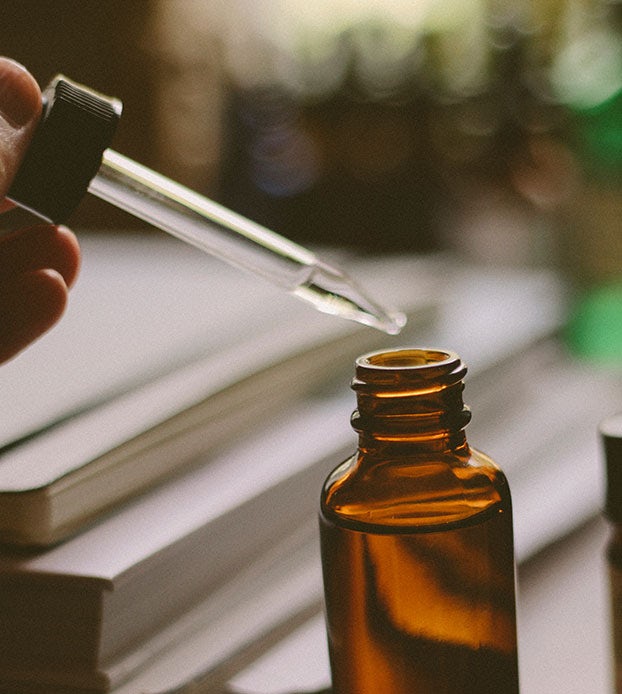There are no shortage of recipes for cannabis-infused hamburgers, milk, and almost every other imaginable food. But can you get high from eating a steak that came from a cow that was fed hemp? The federal government wants to know.
The Food and Drug Administration just gave a $200,000 grant to a team of researchers at Kansas State University to look into how much cannabinoid content remains in the milk and meat of cattle that has eaten hemp.
The researchers have already found that some cannabinoids, the primary chemical compounds found in cannabis like THC and CBD, are absorbed and retained by cattle that eat hemp. But raw hemp or cannabis does not contain the version of THC that leads to the characteristic “high” — only its acidic precursor, THCA. To transform THCA into THC, the cannabis needs to be heated, or decarboxylated first.
“[F]eeding hemp products to livestock remains prohibited because the potential for cannabinoid drug residues to accumulate in meat and milk has not been studied,” said Hans Coetzee, professor and head of the anatomy and physiology department at KSU’s College of Veterinary Medicine.
The next step in their research is to see how quickly THCA and CBDA disappear from the cows’ tissue and milk.
The researchers also want to look at the effects hemp has on the cows themselves, including on their immune systems.
“Now that we have found that some cannabinoids are readily absorbed from the rumen, the next steps are to study the tissue and milk residue depletion profiles of these compounds after animal feeding experiments,” said Michael Kleinhenz, KSU assistant professor of beef production medicine, in to an article published by the university. “The effects of cannabinoids on cattle are also unknown.”

The interest in the research comes as large quantities of hemp are being grown in the United States for various purposes. Industrial hemp production became legal in the US following the passage of the 2018 Farm Bill.
Hemp grown for CBD extraction, however, only uses the flowers of the plant. That leaves a significant quantity of other plant matter that isn’t being utilized. Selling that byproduct plant material to cattle farmers could make hemp a more lucrative crop.
“Industrial hemp is typically grown to produce oil, seed, fiber and medicines,” said Kleinhenz. “While varieties of hemp may be planted for a single or dual purpose, such as for seed and fiber, byproducts consisting of leaves, fodder and residual plant fibers remain after harvest. These byproducts could serve as potential feedstuffs for animals. Because these are predominantly cellulose-containing plant materials, the ideal species for utilizing these feeds are ruminant animals, specifically cattle.”
“This is surprising because cattle can readily utilize industrial hemp byproducts as they can digest cellulose plant materials in their rumens,” Kleinhenz added.“We don’t believe that the degree of absorption is sufficient for us to be concerned about potential intoxication following the consumption of meat and milk,” Hans Coetzee, also with Kansas State, said in an interview, according to Marijuana Moment. “If we can prove that that is of no concern of consequence to the consumer, we feel that that would remove one of the major impediments to the widespread production of hemp worldwide.”
Sign up for bi-weekly updates, packed full of cannabis education, recipes, and tips. Your inbox will love it.

 Shop
Shop Support
Support
















